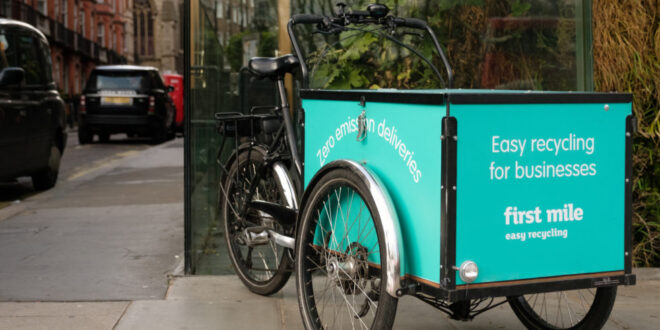First Mile has introduced a new scheme to recycle rechargeable lithium-ion batteries (LIB) found in e-bikes and e-scooters.
With e-scooter trials ongoing, paired with the rising popularity of e-bikes and electric cars and vans, the sustainability company is wary that LIBs will become more and more commonplace in UK streets and is hoping to make an impact before businesses ‘put more hazardous waste into landfill’. It is predicted that by 2030, two million metric tonnes of used LIBs will be generated globally every year.
LIBs, which also charge everyday handheld electronics such as mobile phones and laptops, eventually degrade to the point they can no longer be recharged and are then destined for landfill. First Mile, however, say that LIBs contain precious metals and elements that can be recovered.
‘Our world is fast running out of these finite resources, further exacerbating the need for recycling and the avoidance of landfill sites,’ said the company in a statement. ‘LIBs should never be placed in general waste – as well as precious metals and elements – they also contain hazardous chemicals meaning that if handled incorrectly, they pose a greater risk of fire and environmental pollution.’
All LIBs collected by First Mile, the company said, will be responsibly stored and then safely transported to specialist recycling facilities in mainland Europe. Here, a state-of-the-art recycling process that uses auto-thermal heat treatment and mechanical treatments will recover aluminium, copper, nickel cobalt, and steel from the batteries.
Bruce Bratley, CEO and founder of First Mile, said: “Adding LIB recycling to our suite of recycling services is a really positive step forward for an item that has gained in popularity over the years, starting from consumer electronics and, more recently, the growth in the use of electric vehicles.
“At First Mile, we know from our own green fleet just how much of a positive difference that switching to electric vehicles can have on the environment, but, it’s vitally important that green intentions are maintained throughout the lifecycle of a product. Recycling all components of a product at the end of its useable life is the best way to divert waste from landfill and safeguard our planet’s natural resources.”
 micromobilitybiz Delivering news updates to the micromobility industry, focusing on e-bikes, e-scooters and green transport
micromobilitybiz Delivering news updates to the micromobility industry, focusing on e-bikes, e-scooters and green transport




